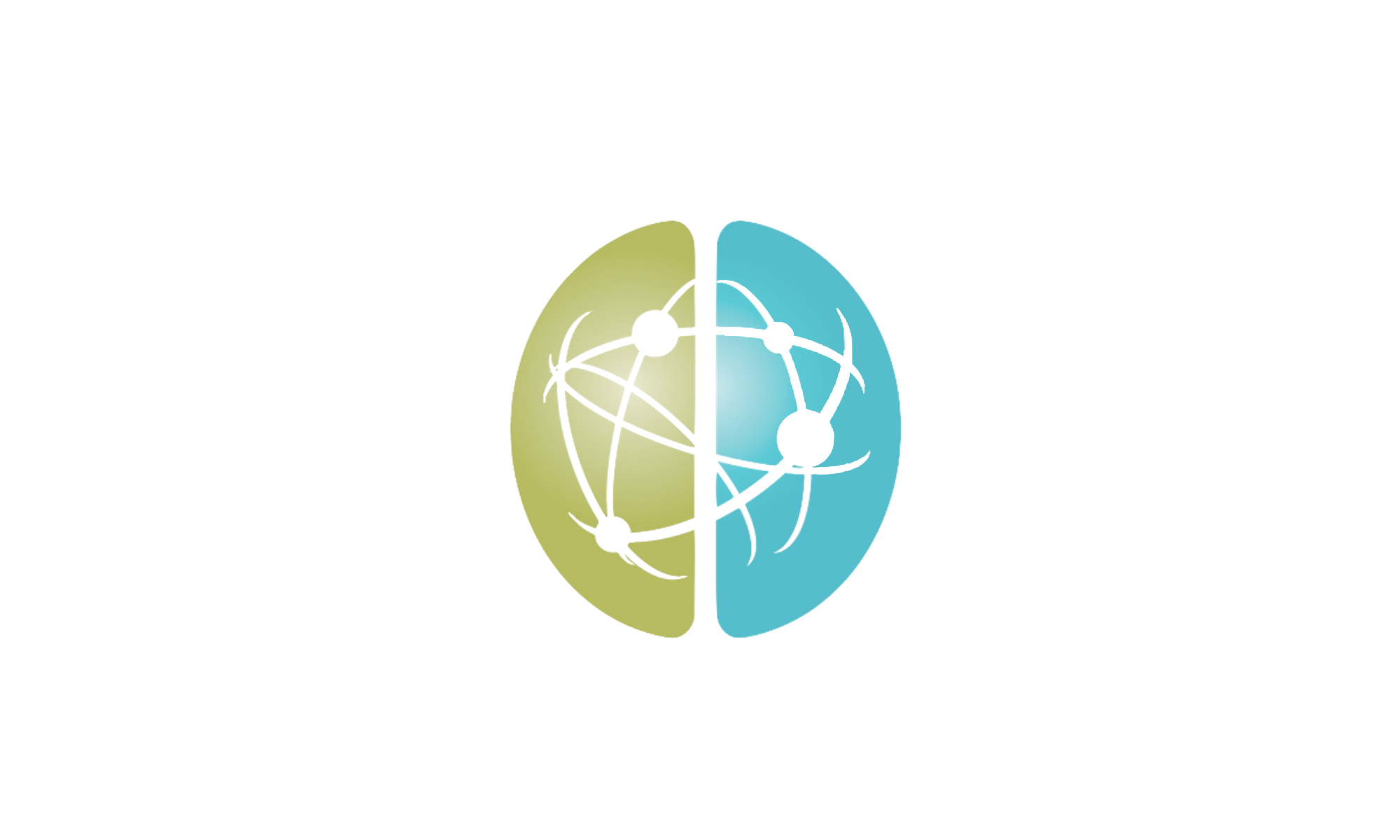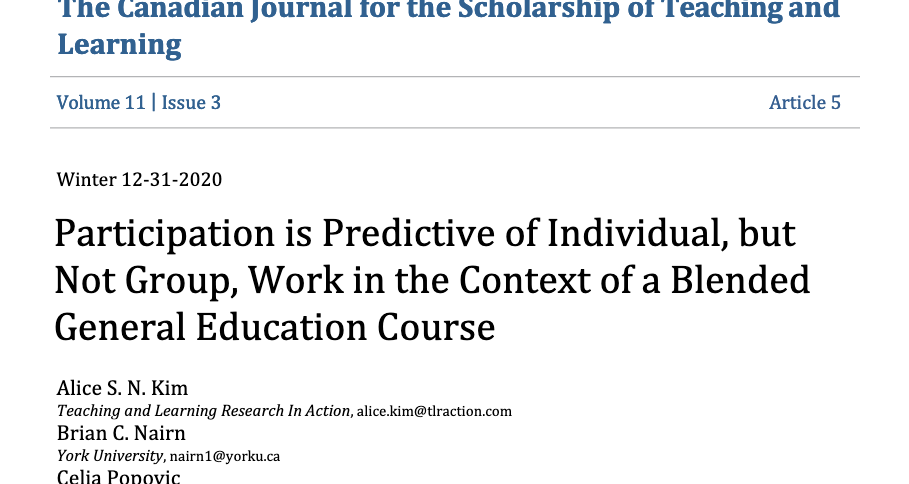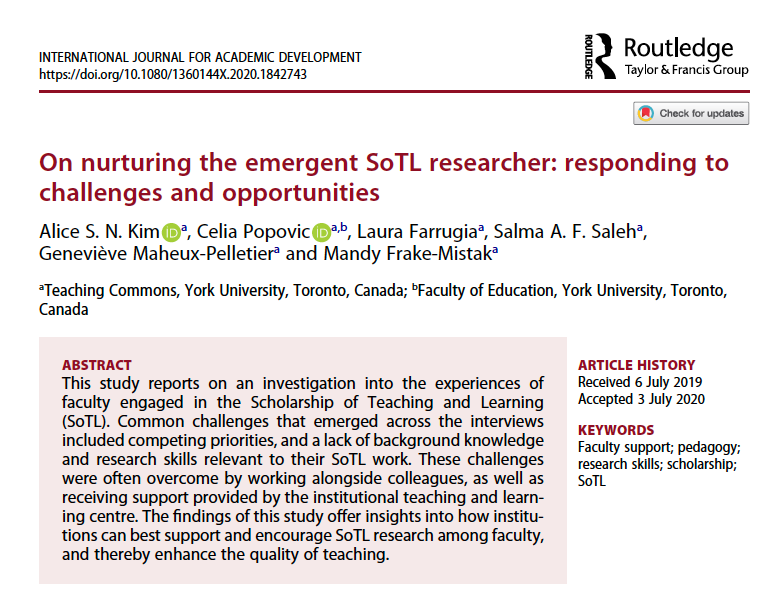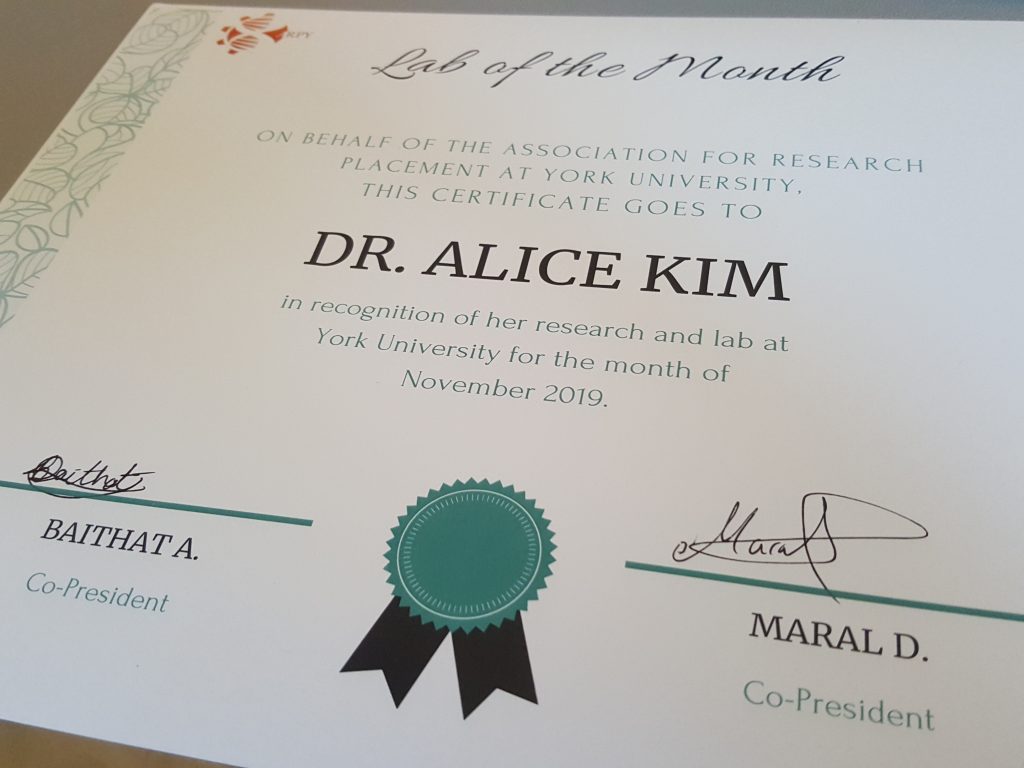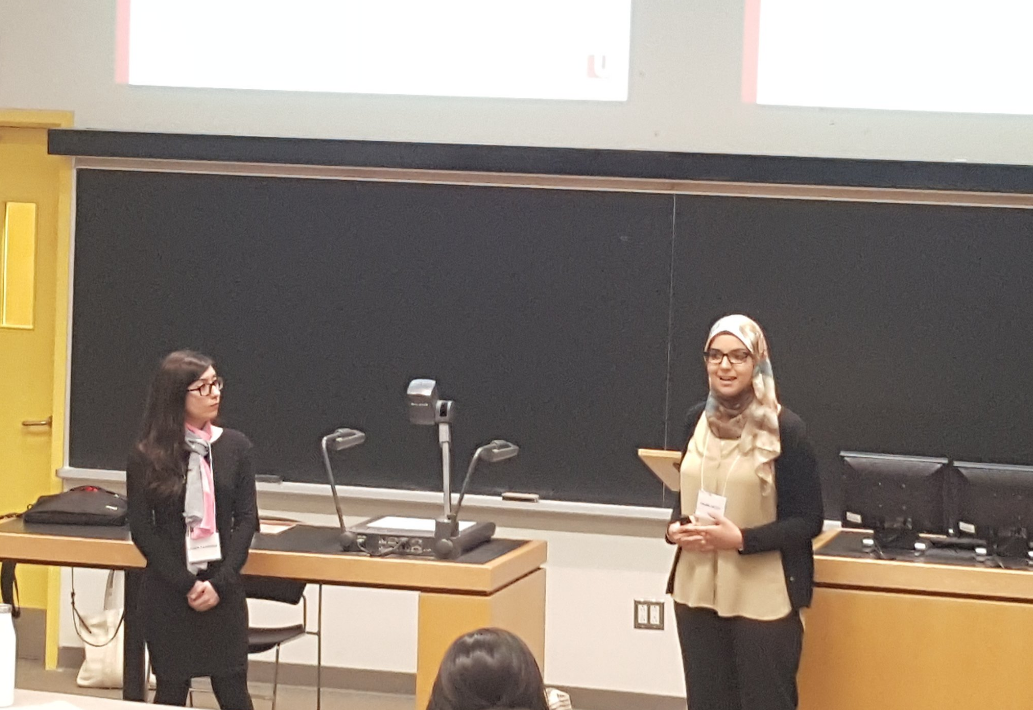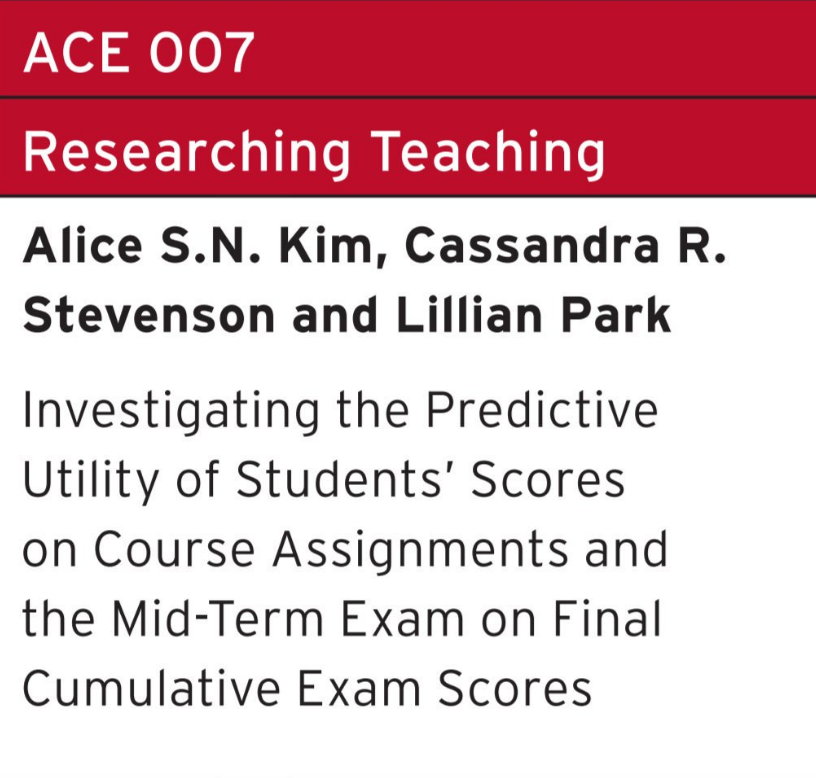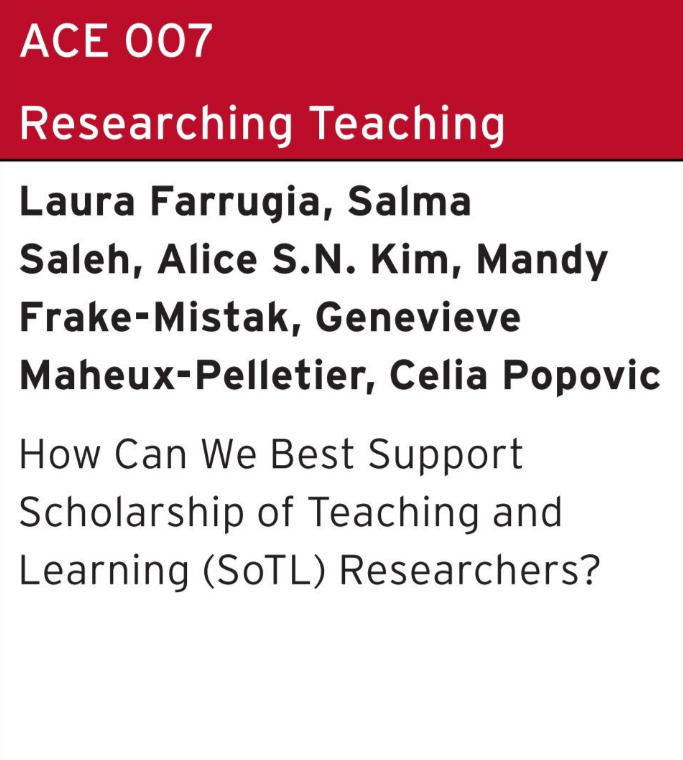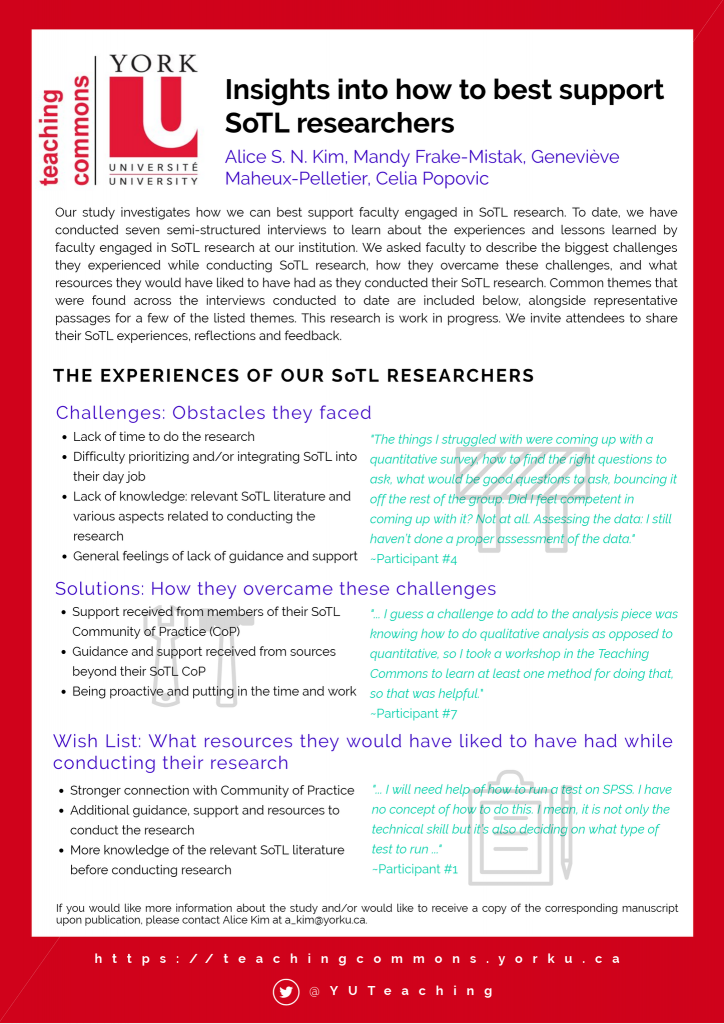It was a pleasure to work on this video abstract with co-authors (Celia Popovic and Mandy Frake-Mistak) for our paper in the International Journal for Academic Development (reference below). A big thanks to Meagan Veneracion, from TLR In Action (tlraction.com), for her amazing animation/illustration work for this video!
Reference:
Kim, A.S.N., Popovic, C., Farrugia, L., Saleh, S.A.F., Maheux-Pelletier, G., & Frake-Mistak, M. (2020). On nurturing the emergent SoTL researcher: responding to challenges and opportunities. International Journal for Academic Development. doi: 10.1080/1360144X.2020.1842743
Request paper at https://bit.ly/3AJnkIQ.
